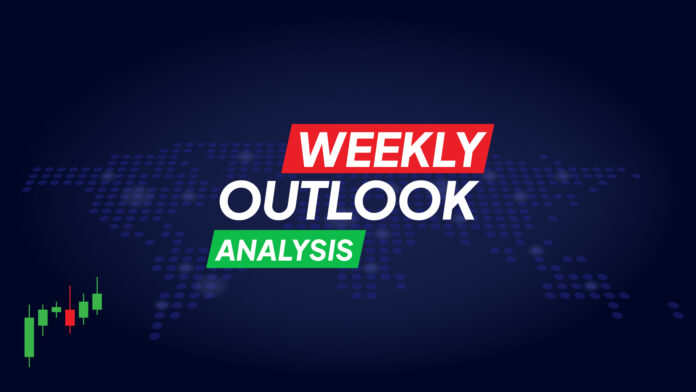Key Points To Watch Out For:
- Markets anticipate Trump’s inauguration
- Bank of Japan to tentatively raise rates at its first meeting in 202
- Euro and pound focus on PMIs
- Canadian and New Zealand CPI data to determine BoC and RBNZ bets
- Davos World Economic Forum in the spotlight
This week promises significant market developments, starting with Donald Trump’s inauguration on Monday, January 20, and culminating in the Bank of Japan’s interest rate decision on Friday. Additional key events include inflation data releases from Canada and New Zealand, PMI updates from the Eurozone and UK, and the highly anticipated World Economic Forum in Davos.
Trump’s Inauguration and Market Implications
The inauguration of President-elect Donald Trump is set to dominate headlines, with investors keenly watching for signals on his economic policies. Expectations of corporate tax cuts, deregulation, and tariffs have buoyed U.S. Treasury yields and supported the dollar in recent weeks.
Solid labor market data from November and December has bolstered the Federal Reserve’s cautious stance on rate cuts, with markets pricing in a total of 40 basis points in reductions by the end of the year—marginally above the Fed’s projections. Trump’s inaugural speech will likely provide greater clarity on his administration’s economic agenda, potentially triggering volatility across FX and equity markets.
Bank of Japan: Rate Decision in Focus
The Bank of Japan will hold its first policy meeting of 2025 on Friday. Speculation of a 25-basis-point rate hike is high, driven by improved inflation and wage data in recent months. Markets estimate an 80% probability of a hike, but the BoJ’s history of maintaining dovish stances despite hawkish speculation tempers expectations.
Should the BoJ raise rates, the yen could see moderate gains, though the effect may be limited compared to the impact of dovish surprises. Traders will closely monitor Governor Kazuo Ueda’s commentary for further policy direction.
Euro and Pound Brace for PMI Reports
Preliminary S&P Global PMI data for January, set for release on Friday, January 24, will play a pivotal role in shaping sentiment around the euro and pound.
The euro has faced headwinds due to policy divergence between the ECB and the Fed, while the pound remains under pressure amid fiscal tightening concerns tied to Labour’s new government. Weak economic indicators from the UK, including dismal GDP and retail sales data, have exacerbated market pessimism. PMI figures pointing to further slowdowns in the Eurozone or UK economies could deepen losses for both currencies.
Inflation Data from Canada and New Zealand
Canada and New Zealand’s CPI figures, scheduled for Tuesday, January 21, will be critical for gauging the monetary policy paths of the Bank of Canada (BoC) and Reserve Bank of New Zealand (RBNZ).
In Canada, strong labor market performance has diminished the likelihood of a near-term BoC rate cut, but weak inflation data could reignite speculation. Meanwhile, in New Zealand, the RBNZ is expected to reduce rates at its next meeting, with markets debating whether the cut will be 50 or 75 basis points. A CPI figure below 2% would heighten expectations of a larger cut, potentially adding further downward pressure on the New Zealand dollar.
Davos World Economic Forum Takes the Stage
The annual World Economic Forum begins on Monday, January 20, running alongside Trump’s inauguration. President Trump is slated to deliver a key address on Thursday, January 23, while Ukrainian President Volodymyr Zelenskyy will speak on Tuesday.
This year’s agenda focuses on geopolitical tensions, climate change, and advancements in artificial intelligence. Global leaders’ perspectives on U.S. policies, technological innovation, and economic risks will be closely watched by market participants for insights into future economic and geopolitical trends.
Conclusion
This week’s lineup of events—spanning Trump’s inauguration, central bank decisions, inflation data, and discussions at Davos—has the potential to shape global markets.
U.S. CPI figures on Wednesday will offer insights into the Fed’s inflation battle. Strong data could reinforce the dollar, while weaker numbers might prompt expectations of more aggressive policy easing.
PMIs and GDP data from the UK and Eurozone will help clarify economic trajectories for both regions.
Inflation reports from Canada and New Zealand could drive short-term volatility, influencing monetary policy expectations for the BoC and RBNZ.
Discussions at the World Economic Forum will shed light on pressing global issues, potentially influencing long-term market trends.
For traders and investors, this week presents opportunities to capitalize on market shifts driven by these pivotal developments.



